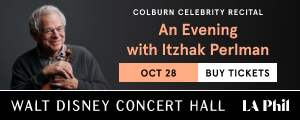recommended books for adult beginner
Hi,
I'm 27 and just beginning violin. Had my first lesson last week, and my teacher told me to buy any beginner books I wanted. He mentioned Suzuki and someone else but I forgot to write down the name. Any recommendations for beginning books that would be good for me? I can already read music, so I would be looking for something teaching more about violin technique than about learning to read music etc. I understand that Suzuki is geared toward teaching very small children? Someone mentioned Kreutzer in a different message- what is that like? I'm planning a visit to my local music store tomorrow to look at some books and see what looks good, but any input would be appreciated.
Thanks!
Jen
Replies (8)
I teach a lot of adult beginners, and my two favorite books to start with, for students of all ages, are Suzuki Book 1 and All for Strings, Violin, Book 1. If possible, buy and listen to the CDs which go with these. Among the many reasons I like these two books is their photographs of people holding the violin and bow correctly. Posture is of the utmost importance, especially when you're learning how to use your body as an extension of your instrument (or vice versa). Also, the inside cover of All for Strings has some handy diagrams. Hold Kreutzer for later -- much later. It is *not* for a beginner. What kind of music do you want to learn to play? If you want to play folk music, The Fiddler's Fakebook is a must. It has a few tunes which you'll be able to play soon.
Have fun, and let us know how it goes.
If you already know how to read music, I suggest getting Suzuki. I feel that it works for everyone, not just small children. It's not like it has little cartoon pictures in it or anything. But I would reccommend getting a suppplement with it. I think , even though it's really meant for school orchestras, that Essential Elements for Strings works quite well. It teaches useful technique, and it helps with the Suzuki repertoire.
Oh, and don't forget the Wohlfahrt etudes, which also help a lot. Good luck!
How is it that you already have learned to read music? Is it from singing or piano? I'm curious as to exactly how much you already know about music.
I second Laurie on Doflein. I like it LOTS more than Suzuki.
Hi, there! I really like the beginning repertoire of the Suzuki books, but, also, I have just come across another really good book. It's a little difficult to find (I had to special order it, and it took like a month to get to me!) But it's worth it.
Published by Edition Peters, it's called "Shostakovich Album-pieces" or "Shostakovich Albumstucke" (in German). It's a charming collection of Shostakovich's short, sweet, and simpler pieces, almost entirely tonal and all that. It starts out with the really simple and goes all the way to the "Gadfly Romance". Great learning tool, and it's "real" music from the 20th century (whatever that means). =)
Start off with Suzuki or whatever first, but I highly recommend this collection as a nice supplement just a little ways down the line...
Thanks for all the replies! I love this board. I got the first Suzuki and Doflien books to start with.
Emily, I took piano lessons from the age of 5-15, and played clarinet for a couple of years in high school. Sadly, my music-making dropped off to almost nil during and after college, with the exception of occasional piano playing and messing about with electronic keyboards and computer music programs. Music-reading might be a little rusty, but hoping it will come back quickly!
With that kind of early exposure and involvement in music, you are off to a great start. Especially if you've had any theory training. Get real comfortable with the concept of whole and half steps, what they sound like, where they lie in relation to scales, and then you will be able to make sense of where they are on the fingerboard. Interval recognition, both written and aural, is also a good tool when learning the violin. Go to teoria.com for fun tools to mess around with. Good luck with your training!
This discussion has been archived and is no longer accepting responses.
Violinist.com is made possible by...
Dimitri Musafia, Master Maker of Violin and Viola Cases
Johnson String Instrument/Carriage House Violins
Subscribe
Laurie's Books
Discover the best of Violinist.com in these collections of editor Laurie Niles' exclusive interviews.

Violinist.com Interviews Volume 1, with introduction by Hilary Hahn

Violinist.com Interviews Volume 2, with introduction by Rachel Barton Pine











January 15, 2005 at 05:53 AM · Doflein Book 1. you may have to play for six months before starting this one, but it's excellent and also has a lot of duets to play with your teacher. There are four Doflein books and I find that they really solidify basic technique for students.
Best of luck!